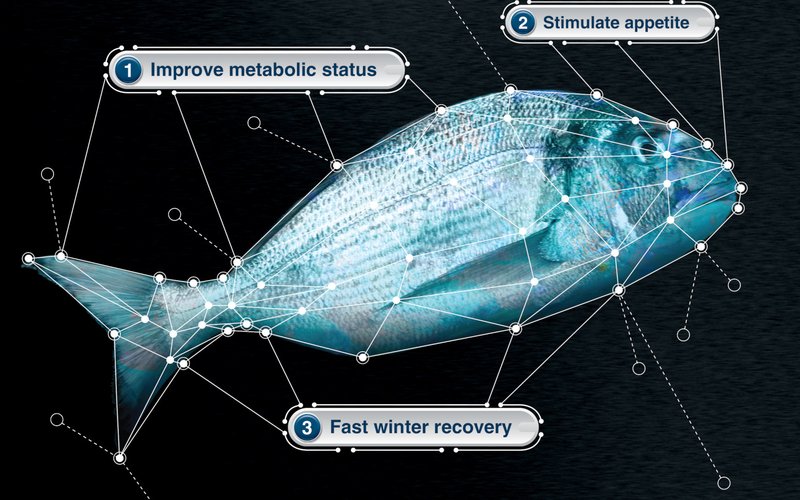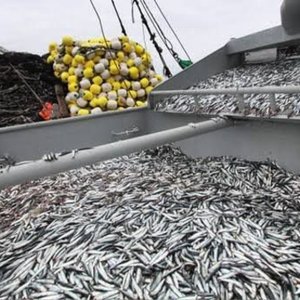The arrival of the cold season has consequences for the health of most marine species, and this is no less true of seabream (Sparus aurata), which reveals its vulnerability to low water temperatures in the form of winter disease.
Winter disease is a hepatic disease of multifactorial cause and is seen when the water temperature drops below 15°C. It involves metabolic changes that, along with nutritional deficiencies caused by the lower food intake, lead to signs of stress, immune suppression and greater susceptibility to opportunistic pathogenic agents. This disease causes a series of other harmful effects, such as loss of weight (growth deacceleration) and associated mortality that have a very negative impact on fish farming.
However, it is possible to minimize the impacts of this disease through adequate nutritional strategies. Aquasoja developed DORIN, a functional feed that acts on the liver metabolism in seabream, avoiding physiological problems resulting from thermal shock. The feed has a low nutritional density (16% fat) and includes only fish oil as a source of additional lipids, to ensure a maximum supply of omega-3 essential fatty acids and better digestibility. Its action covers various aspects, as it aids lipid digestion and improves liver health through hepatoprotective plant extracts, emulsifiers and lysophospholipids. DORIN also protects against pathogenic bacteria and parasites and supports the immune system of seabream as it is reinforced with antioxidant vitamins, nucleotides and essential oils.
The action of DORIN extends beyond the cold season, with its effects continuing when voluntary feeding increases again in the spring. The good health of the liver and gastrointestinal tract, and the better immune condition, ensure better recovery during this period.
To achieve the intended effects of this nutritional solution, it is recommended that seabream be fed with DORIN when the water temperature drops below 15°C. This feed regimen should be maintained throughout the winter, until the water temperature rises again to 17-18°C. This control by the fish farmer is essential to boost the effects of DORIN as much as possible and should be complemented with good feed management practices, such as the number of feeds per day and the optimum granule size for the fish.













